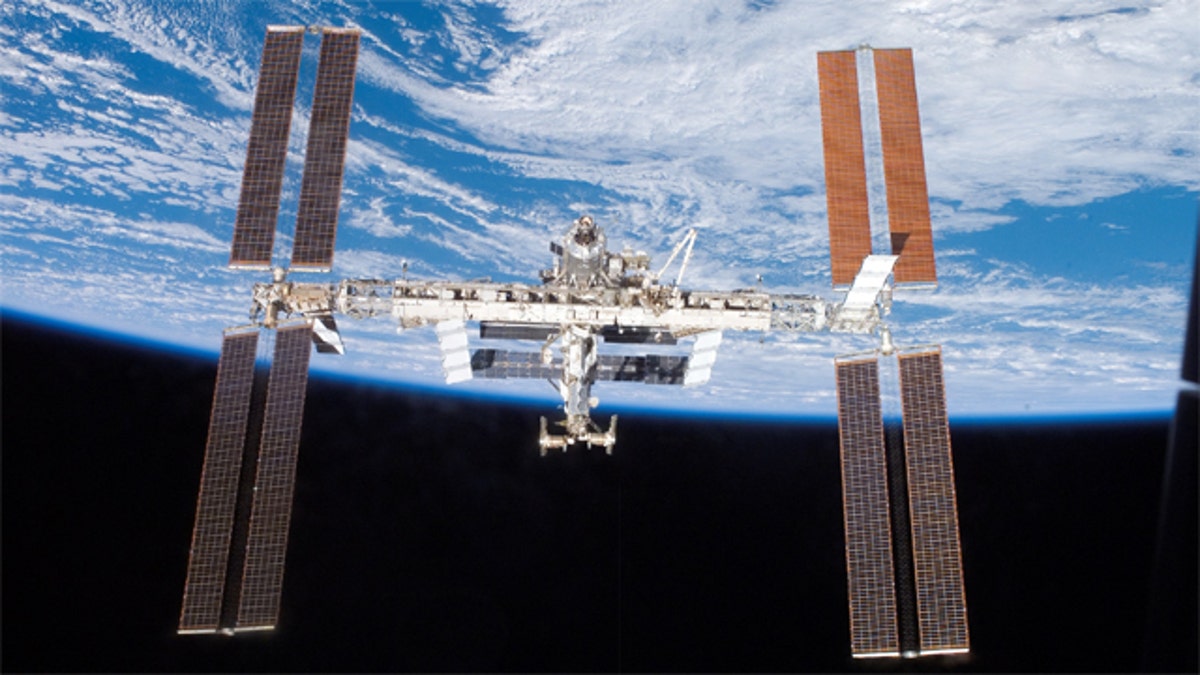
Astronauts are prepping to leave -- but not shutdown -- the International Space Station (NASA)
The astronauts aboard the International Space Station said Monday that ground controllers are figuring out how best to leave the vast complex running -- what lights to leave on, which vents to keep open -- in case it needs to be temporarily abandoned.
A Russian rocket carrying space station supplies failed during liftoff two weeks ago and crashed into Siberia. It's the same type of rocket used to launch people to the station. Until Russian engineers can figure out what went wrong, all Soyuz launches are on hold.
Six men are living aboard the space station. Three of them will leave late next week, a week late to keep the outpost fully staffed as long as possible. A new crew of three was supposed to blast off this month. But the flight has been delayed until at least the beginning of November, just two weeks before the three remaining residents would have to leave.
Given that the investigation is still ongoing, "there are a lot of things that have to stack up" to allow for an early November launch, said U.S. astronaut Michael Fossum.
Fossum said he and his two crewmates will leave the space station in the best possible condition if it must be vacated.
"The teams in Houston are in the preliminary stages of deciding everything, from what ventilation we're going to leave running, what lights we're going to leave on, what condition each particular experiment will be on, every tank, every valve, every hatch," Fossum said at a news conference from space.
He added: "It's too early for us to get too worried about that frankly. It will take us a few weeks to finish that up, but we have another nine or so weeks here, my crew of three. So we've got plenty of time for those kinds of things."
Astronauts have been living aboard the station, without interruption, for almost 11 years.
With NASA's space shuttles retired as of July, the Soyuz is the only means of getting astronauts to and from the space station. Private U.S. companies hope to provide an alternative in three to five years. These commercial rocket makers will start with cargo runs -- possibly by year's end -- and build from there.
At best, Fossum and his two crewmates -- one Japanese and one Russian -- will have less time than usual to brief their replacements face to face. They're already videotaping some instructions. At worst, the newcomers will have to make do with the videotapes, with no one on board to greet them and fill them in on the workings of the sprawling lab. None of the three has lived on the space station before; in fact, two will be new to space.
"The space station does require some care and feeding, and so it's important for us to be here if we possibly can," Fossum said. "If that's not possible and we have to shut it down for a little while, we're going to do our best to leave it in the best possible condition to make it through that down time, and have it prepared for the next crew to open the doors, turn on the lights and come on aboard."
U.S. astronaut Ronald Garan Jr. pointed out that science experiments still "are going full speed ahead."
"We are breaking records every week with the number of hours" devoted to scientific research, Garan said.
That pace will diminish, however, as soon as Garan and his two Russian crewmates return to Earth in their Soyuz capsule next week. That's why the participating space agencies are so eager to keep six on board; it takes that many pairs of hands to keep the space station humming and experiments going.
